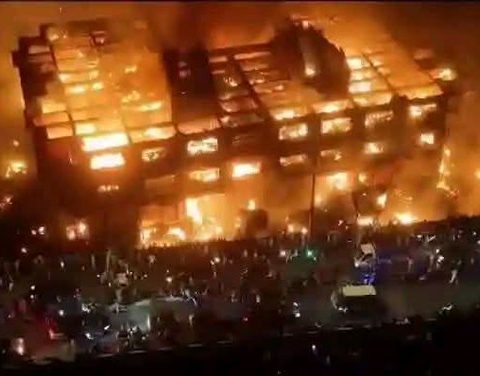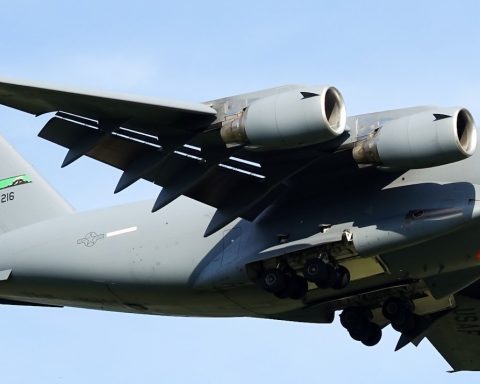A protest by a group of visually impaired persons on Monday paralysed road access to the Murtala Muhammed International Airport, Lagos, forcing passengers to abandon vehicles and resort to commercial motorbikes to make their flights.
Eyewitnesses told Prime Business Africa that the protesters, who gathered near the international wing, were voicing grievances over Nigeria’s worsening economic situation and what they described as bad governance.
Join our WhatsApp ChannelBy 2:00 p.m., police and military personnel had taken control of the exit gate at Murtala Muhammed Terminal 2 (MM2), redirecting all vehicles to an alternate gate as protesters blocked movement beyond MM2 toward the international wing.
The disruption left travellers stranded on Airport Road, with many turning to commercial motorbike operators despite Lagos State’s ban on motorcycles with certain engine capacities on major roads, including Airport Road. Riders charged between ₦1,500 and ₦2,000 for trips covering just a few hundred metres, ferrying passengers to both the domestic and international terminals.
READ ALSO:5 Sexual Health Benefits of Bitter Leaf
U.S. Deepens Security, Economic Ties with Angola, Namibia Through African-Led Solutions
Uniformed police and military officers were also seen riding motorbikes to move stranded travellers.
It was not immediately clear whether the protest was organised by a recognised association of the blind or was a spontaneous action by disgruntled individuals.
John Adoyi, a visually impaired journalist serving with Prime Business Africa under the National Youth Service Corps (NYSC), said there was no official confirmation from any umbrella body representing the visually impaired in Nigeria.
As of press time, airlines had not issued public statements on whether departures would be delayed to accommodate affected passengers.
The Lagos State Government prohibits motorcycles above a specific engine capacity from operating on major trunk roads and key city routes, including the Airport Road, citing safety concerns. However, such bans are routinely flouted during emergencies, with riders exploiting the opportunity to charge premium fares.
The protest highlights the growing frequency of spontaneous demonstrations linked to economic hardship, as well as the vulnerability of critical transport infrastructure to sudden disruptions. For travellers and airlines, the incident was a stark reminder of how quickly access to Nigeria’s busiest airport can be paralysed.
Amanze Chinonye is a Staff Correspondent at Prime Business Africa, a rising star in the literary world, weaving captivating stories that transport readers to the vibrant landscapes of Nigeria and the rest of Africa. With a unique voice that blends with the newspaper's tradition and style, Chinonye's writing is a masterful exploration of the human condition, delving into themes of identity, culture, and social justice. Through her words, Chinonye paints vivid portraits of everyday African life, from the bustling markets of Nigeria's Lagos to the quiet villages of South Africa's countryside . With a keen eye for detail and a deep understanding of the complexities of Nigerian society, Chinonye's writing is both a testament to the country's rich cultural heritage and a powerful call to action for a brighter future. As a writer, Chinonye is a true storyteller, using her dexterity to educate, inspire, and uplift readers around the world.











